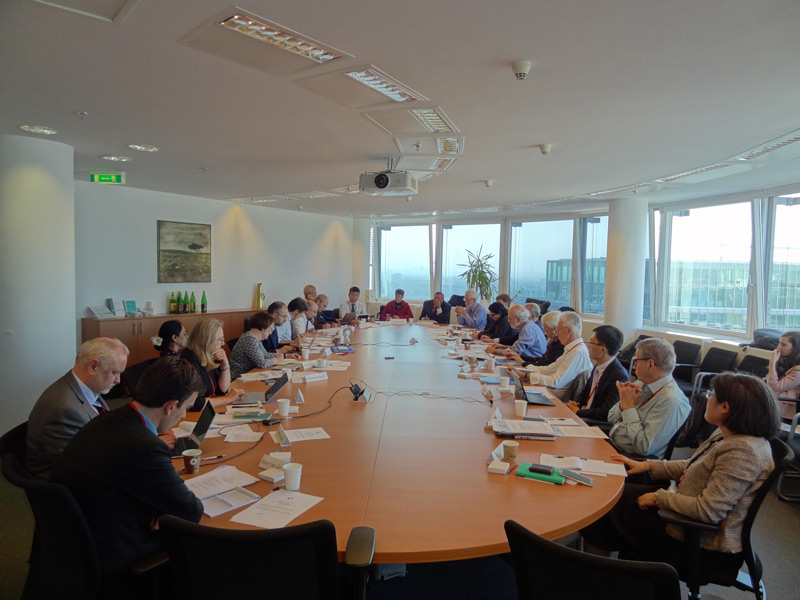Workshop: Arms Control and World Order
An international workshop of experts and diplomats has concluded that sweeping changes in the world order over the last two decades have contributed to the unravelling of the arms control regime.
The workshop, convened by the Toda Peace Institute, the Norwegian Institute for International
Affairs and the University of Otago, brought together representatives of the arms control
communities in the United States, Russia, Europe, China, India, Pakistan, Japan and the Middle
East. The workshop was hosted by the Vienna Center for Disarmament and Non-Proliferation
and was held from 13-15 October 2019.

World orders can be thought of as successive configurations in the structure, rules and distribution of power of the international system. Since 1945, world order has been based on a dense architecture of multilateral organisations and has moved through phases of rules-based order, multilateralism and bipolar order. The prospects for the restoration of a liberal international order may be under threat with the rise of nationalism and populism, along with underlying changes in the world economy, in technology, in the distribution of power, and in cultures and beliefs. It is clear that the new distribution of power calls for rules and institutions which go beyond those of the post-1945 world.
A key theme of the workshop concerned the prospects for checking dangerous dynamics in a time of turbulent change. The workshop examined three historical precedents for managing international security and arms control cooperatively and drew lessons for the present day:
The case of the Concert of Europe suggests that a managed system of international security could prevent war over a long period.
The case of the Détente period of the 1960s and 1970 suggests that improvements in arms control and in world order are mutually reinforcing.
The development of confidence-building measures through the Stockholm process in the 1980s suggests that limited, step-by-step measures are a means for making progress in an unpromising environment.
The workshop considered different views on world order and the arms control regime, put forward by the participants. These included Russia’s place in the world order if it views itself as a Euro-Pacific state with interests in Asian affairs, China’s lack of enthusiasm for participating in a trilateral nuclear agreement with the US and Russia, and India’s awareness that arms control to manage technological proliferation might be necessary. The role of technology as a powerful driver of the arms race was recognised.
The workshop examined the viability of the regional and multilateral institutions, and the need for new institutional arrangements, along the lines of a 21 st Concert. While it is clear that leading states are failing to use the existing international institutions, which are easily deadlocked as a result, most international organisations, multilateral and regional institutions are still functioning. The workshop concluded that it is important to preserve the multilateral institutions, since they provide fora for consultations and side meetings.
The workshop concluded with a discussion of ways to change mindsets through dialogue and research. Mind-sets are malleable, and opportunities must be created for them to change. While there may not be agreement on a shared view of the future, there was agreement that we have to share the future. A fundamental shift is needed, away from a narrow and self-defeating pursuit of unilateral military security, towards cooperative security for the benefit of all.